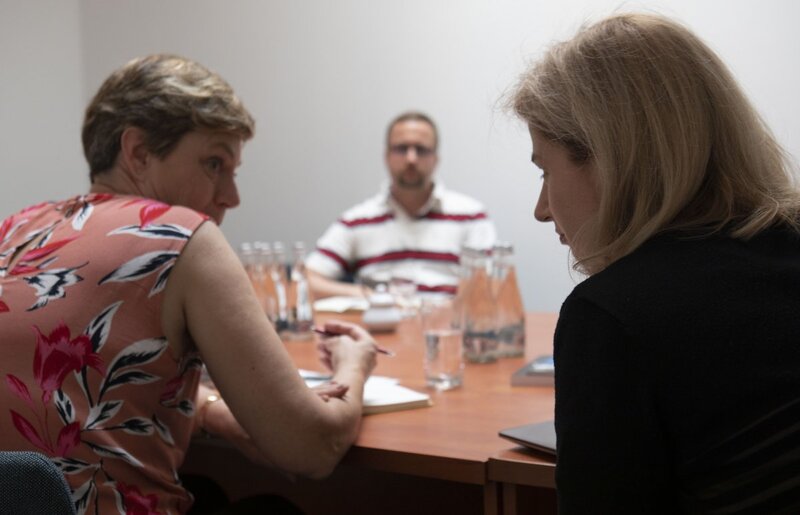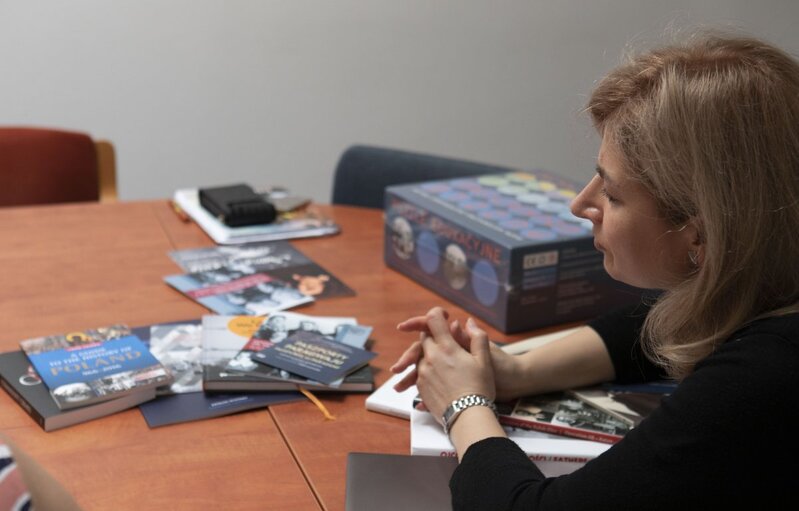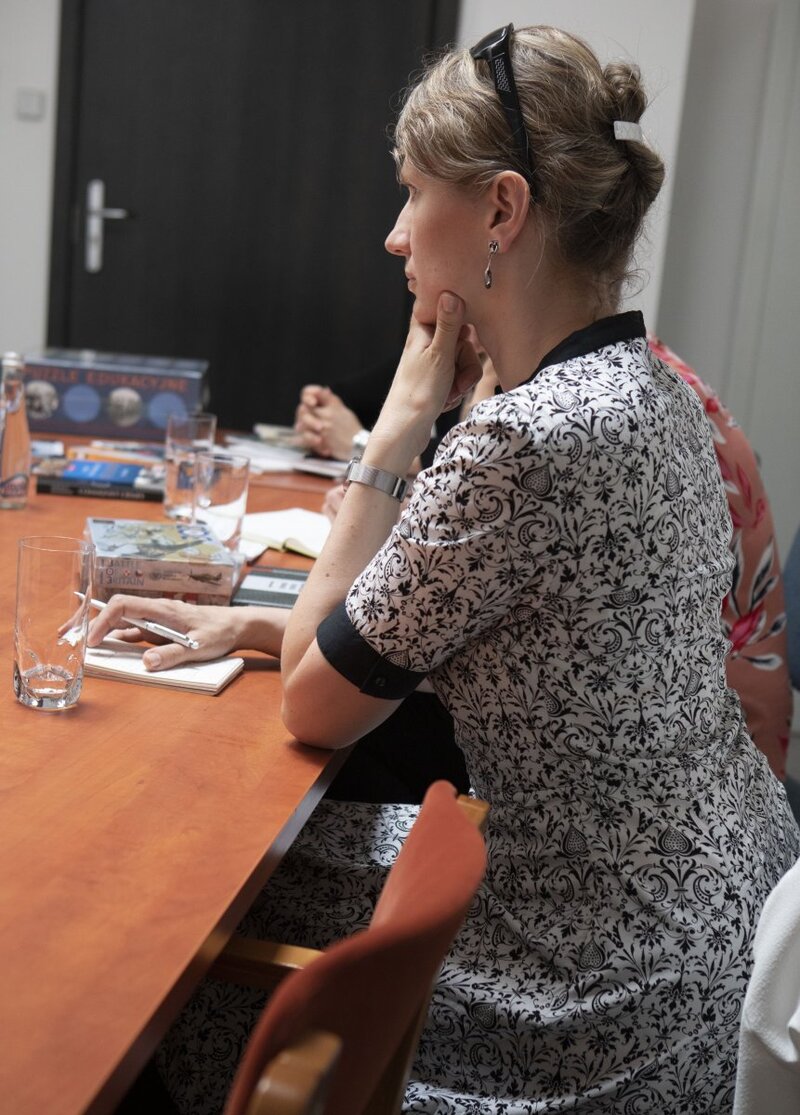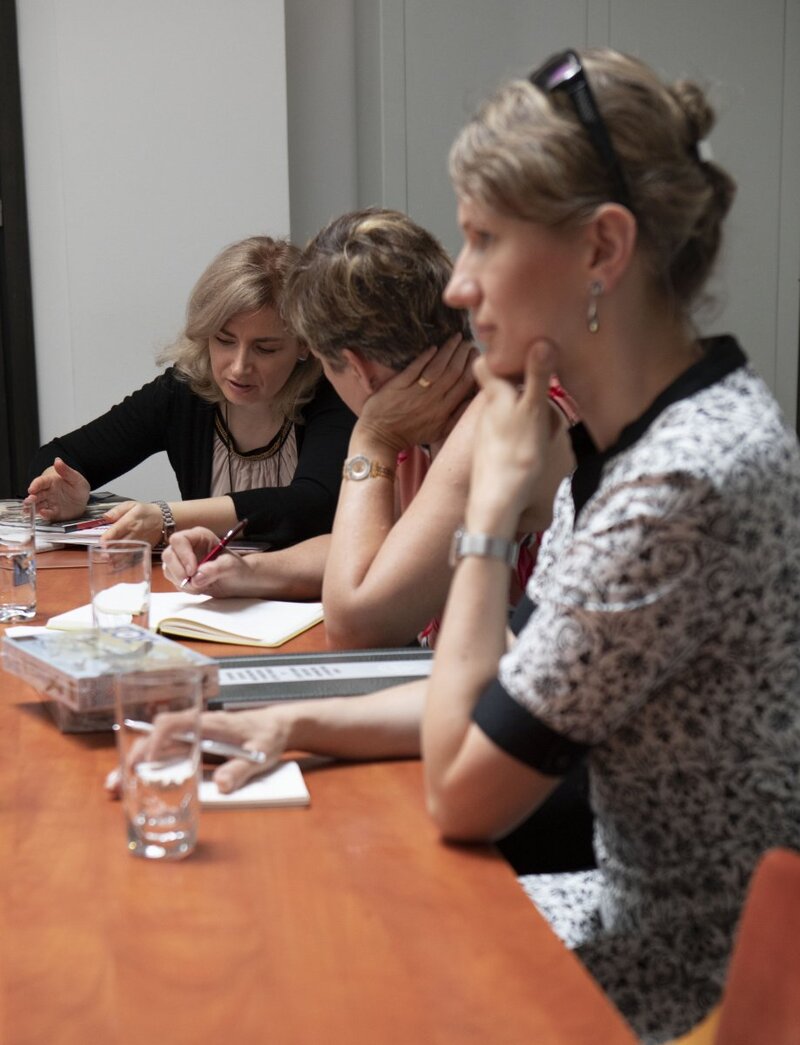The event was part of a study visit of journalists from South Africa to Poland, prepared by the Ministry of Foreign Affairs and the Polish Press Agency.
The visit aims to explain the process of transformation and ideological changes in Poland the South African society, for whom the transfer of Polish experience is vital. Among the topics that journalists are particularly interested in are the Polish road to freedom, the struggle to regain independence, the restoration of democracy, as well as the respect for human rights. Poland is perceived as a country of successful social, economic and political changes, democratic changes contributing to the economic success. In addition, the project promotes the history of Poland in the context of the 80th anniversary of the outbreak of World War II and the 75th anniversary of the Warsaw Uprising.
Agnieszka Jędrzak presented the genesis of the Institute's establishment, the legal basis of its activities, the structure at the level of the headquarters and branch offices ,as well as the tasks carried out by subsequent substantive departments. DrTomasz Kozłowski talked about the transformation process after the overthrow of communism and the comprehensive settlement of the past connected with it. Valerie Boye asked about the difficulties connected with transitional justice and compensation to the victims. She also raised the subject of the IPN investigative activities. In this context, the cases of Wojciech Jaruzelski and Czesław Kiszczak, related to the illegal introduction of martial law in Poland, were discussed. In the course of the case, the court agreed with the indictment of the Prosecutor from the IPN’s investigative division that martial law was prepared and introduced contrary to the then constitution, and this was done by a "criminal group of armed character" composed of people in the highest positions. This group was composed of generals: Wojciech Jaruzelski, Czesław Kiszczak, Florian Siwicki and Tadeusz Tuczapski. The journalist also asked a question about the most effective way of coming to terms with the past. All participants agreed that the compilation of activities in the sphere of research, education, commemoration, prosecution of crimes, care for archival legacy remains a strong weapon in propagating knowledge about key events in Polish history. However, it was unanimously concluded that educational activities, including workshops, exhibitions, games or thematic materials are the key to shaping national identity and patriotic attitudes.
The study visit will result in publications in printed and electronic press as well as on the Internet via social media.





